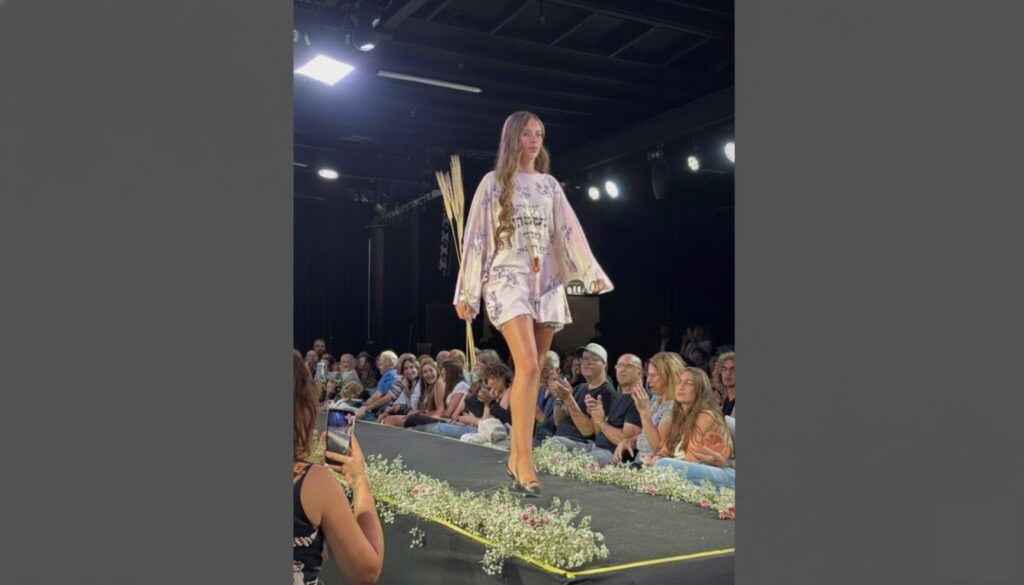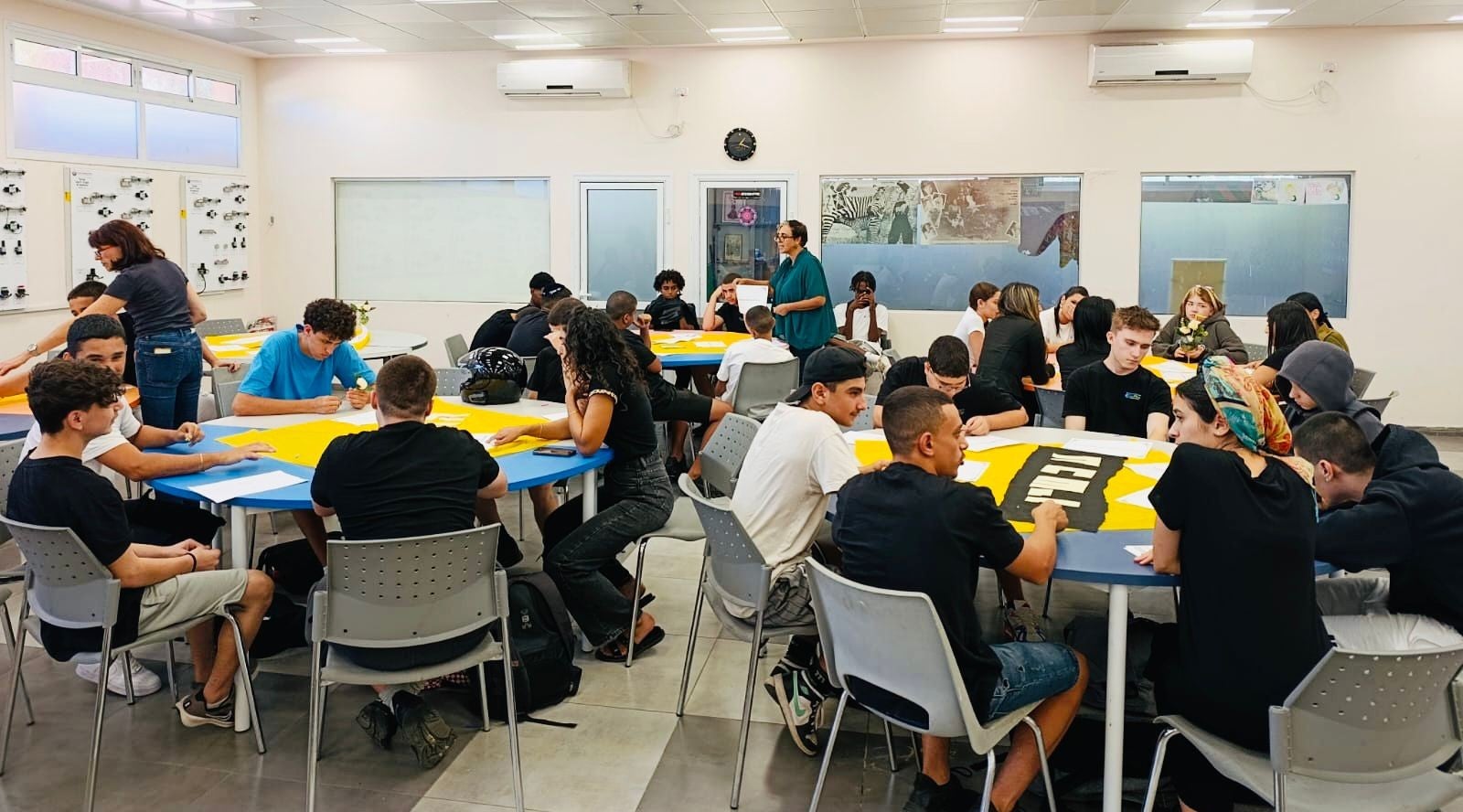TEL AVIV — Students at the Max Fein Vocational High School in Tel Aviv are used to overcoming challenges.
The school long has been known as a place where students who have fallen through the cracks in Israel’s state educational system — whether due to trauma, family problems, mental health struggles or socioeconomic hardship — get an opportunity to rewrite their life trajectories. Children come from diverse backgrounds, including immigrants, refugees, and students who dropped out or were expelled from their previous schools.
But when the school was damaged by Iranian missile strikes during the 12-day war between Israel and Iran, it brought a new kind of hardship.
“In the heart of Tel Aviv, where missiles have fallen and protests flood the streets, our students are fighting personal battles just as fierce,” Ofir Levy, the school principal, who spent 10 months in military combat reserve duty since Oct. 7, 2023, said at the time. “They have been amazing about it. Because this school is more than a classroom. It’s a home, a sanctuary and a second chance.”
Israel’s longest-ever war may be at its end, but two years of conflict have left their mark on Max Fein.
Like others in Israel, students had to deal with personal losses, including relatives killed in the war, and frequent air raid sirens. The school came under particularly heavy fire during the Iran-Israel war because it’s located right next to Israel’s military headquarters in Tel Aviv. And the prolonged absence of Levy, an IDF company commander, left the school without its leader during one of the most turbulent periods in its history.
Now the school is using these challenges as an opportunity for renewal, renovating rocket-damaged areas into new creative spaces, including building a podcast and music recording studio as well as a long-awaited gym.
In this sense, the Max Fein school is a mirror of Israeli society: It took a hit, but thanks to the strength of its community it’s bouncing back and rebuilding.
In November, the school inaugurated the MaxFun Center, a new space for conferences, arts and sports meant to foster creativity, culture and resilience. The center currently is hosting an exhibition of artworks by graduates that reflect the school’s role as a home and creative sanctuary for students from diverse and often challenging backgrounds.
During the war, students said that having their principal in uniform — facing the same dangers as their brothers, cousins, and neighbors — brought both anxiety and pride. When Levy returned between military deployments, he reminded students that resilience was not just a lesson in their textbooks but something lived together in classrooms, bomb shelters and the front lines.
In December 2024, 11th graders at the Max Fein school in Tel Aviv launched a campaign protesting the world’s silence in the face of the sexual violence committed against Israeli women on Oct. 7. (Courtesy of Amal)
Even during missile attacks, classes moved into bomb shelters and lessons continued, turning war-related disruptions into moments of strength. When the school was struck by Iranian missiles, the building was empty because all schools in Israel were closed at the time due to the war.
“When the missiles hit, it was terrifying to think what could have happened if students had been inside,” Levy said. “We walked through the rubble of a classroom that, in normal times, would have been full of teenagers. The fact that the building was empty saved lives, but it also reminded us just how fragile normalcy is. For our community, it was a wake-up call that education here is always under fire, literally, and yet that makes our mission all the more urgent.”
Max Fein aims to be an oasis of sorts for its 160 students, including both high school and a two-year post-high school track with courses in vocational subjects like electrical engineering, mechanics, sound production and fashion design. At Max Fein, students spend two days a week working and three in class.
The school is part of Amal, a national network of 50 schools focused on populations at the periphery of Israeli society: the disadvantaged, immigrants, Arabs, haredim and others. Traditionally positioned as a network of vocational schools, Amal has focused in recent years on helping heal Israel’s societal rifts and strengthening democratic values among its more than 3,000 teachers and 26,000 students. In addition to receiving state funding, Amal relies on support from the private sector and Jewish communities around the world.
“These are not easy times in Israel,” said Amal’s director general, Karen Tal, an award-winning educator. “Schools like Max Fein show us what’s possible: that we can be inclusive, that we can be strong, that we can build a better society, student by student. We are creating a new blueprint for Israel: one rooted in compassion, shared responsibility, and a belief that every child, no matter where they come from, deserves the tools to shape the future.”
Today, Amal is Israel’s most diverse high school network — geographically, demographically, and in the kinds of schools it runs. As Amal approaches its 100th anniversary year in 2028, it’s aiming also to be a top-tier network for civics and science-technology education.
At Max Fein, vocational programs in electrical engineering, carpentry, and culinary arts are tied directly to workplace apprenticeships.

Students at the Max Fein school study vocational subjects like electrical engineering, sound production and fashion design, spending three days a week in class and two working. (Courtesy of Amal)
The school’s annual fashion show is both a creative and emotional outlet. When student Tamar Idan designed a garment in tribute to Liri Albag, a young Israeli taken hostage on Oct. 7 and later released, Idan wrote. “Liri radiates inner strength and courage. I chose the pansy flower to represent her: small but striking, able to bloom in hard conditions. It symbolizes both sensitivity and resilience, just like her.”
Last December, 11th graders launched a campaign protesting the world’s silence in the face of the sexual violence committed against Israeli women on Oct. 7, designing Barbie-themed posters and outfits.
“We wanted to give a voice to women who could no longer speak for themselves,” one student explained. “Fashion was our way of shouting back and saying that silence is unforgivable.”
Shir Bachar, who leads the school’s fashion design track, said, “We live and teach in the thick of it. Our students absorb everything – politics, war, anxiety, confusion. And yet, somehow, they show up. That presence and togetherness are what gets us through.”
The school is deeply embedded in the local community. Local high-tech companies donate time and materials to the school, and local law firms offer pro bono classes.
One of the Amal network’s guiding principles is closing educational gaps between disadvantaged students and Israel’s privileged.
“These are students who have been rejected by the system,” Levy said. “At Max Fein, they’re not only welcomed. They’re celebrated.”
Power the news that matters to you. Before 2025 ends, help (JEWISH REVIEW)’s independent, award-winning newsroom document Jewish history in real-time.




